rhumba
the tapping july hail
puts me in mind
of how this salsa dancer used
to break my windows twice a month
with the stiletto flipped off her lil left foot
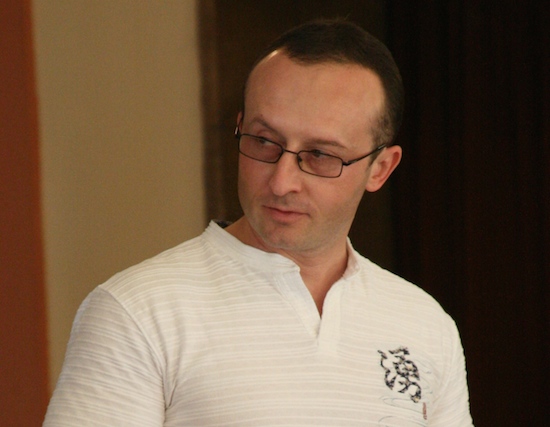
"had no idea literature is about what you drink / with whom and where when I found that out I was already too old"
rhumba
the tapping july hail
puts me in mind
of how this salsa dancer used
to break my windows twice a month
with the stiletto flipped off her lil left foot
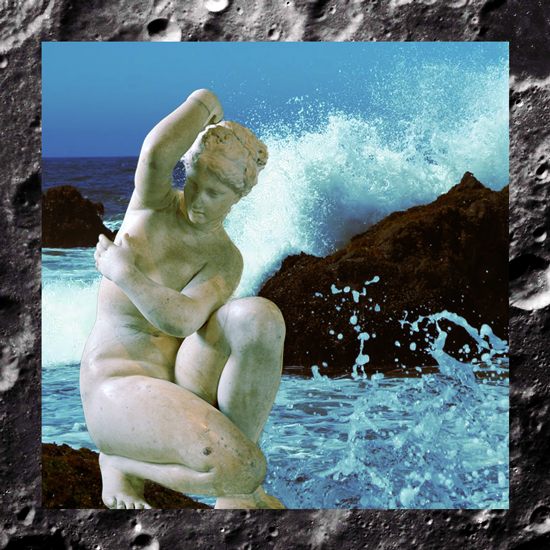
"Labourer of lesser forms, he translated us into his clay language […] but failed to comprehend the pent-up desire of things."
Read all previous posts in Asymptote’s “Mimes” translation project here.
Mime XIV. The Parasol of Tanagra
Thus extended by my moulded rods, plaited with clay straw or woven with earthen fabric reddened by firing, I am held to the rear and towards the sun by a young girl with beautiful breasts. With the other hand she lifts her tunic of white yarn, and above her Persian sandals one may perceive ankles fashioned for electron rings to adorn. Her hair is wavy and a large pin traverses it at the nape of her neck. Averting her head she reveals her fear of the sun; she resembles Aphrodite come to incline her head.
Such is my mistress and earlier we have roamed through the meadows strewn with hyacinths, when she was in the rosy flesh and I made of yellow straw: the white sunshine kissed me on the outside, and below my dome I was embraced by the fragrance of the virgin’s hair. And the Goddess who transforms things having granted my wish, akin to a water-swallow falling with spread wings to caress with its beak a blossom born in the midst of a pond, I gently plunged onto her head. I lost the reed maintaining me far from her in the air, and became the hat covering her with a quivering roof.

Searing poems by Romanian poet Andra Rotaru, translated by Florin Bican
36 days
less than 36 days since we haven’t talked to each other.
by less
than 360 degrees can the body rotate still.
and, there –
when we no longer know.
I had before my eyes the heavy skin.
it had uncovered itself thoroughly,
like some sort of shock-proof wood.
it had developed a sheen and enamel.
it had sunk deep into the earth
since the earth patch I’m standing on
has the hue of a man’s flesh
since my skin’s ever whiter
do not wake up. a man’s body is attaining perfection.
green wood turns to black wood,
the texture gets rougher.
I’d stir my hands and they’d uncover themselves
I’d press them till neither the blood nor the lymph.
then, after a lengthy detour from my own body,
they’d fill up my tissues, they’d pile up,
no induration, nor rubber wood,
but soft wood we can keep banging on.
you tell me take care what you dream.
since the earth patch I am standing on
has the hue of a man’s flesh
since my skin’s ever whiter.
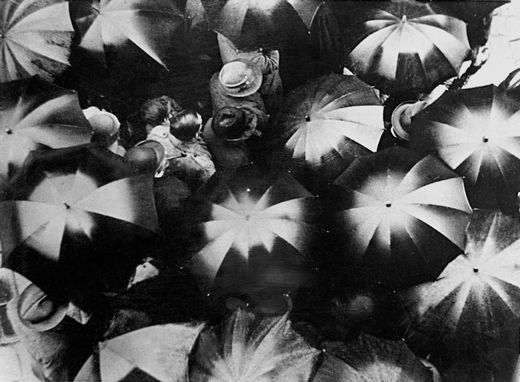
Distinct and powerful short fiction from Brazil, translated by Elisa Wouk Almino
It rained, rained, rained and I went on inside the rain to meet him, without an umbrella or anything, I always lost them all at the bars, I only carried a bottle of cheap cognac pressed against the chest, it seems insincere said this way, but it was how I went through the rain, a bottle of cognac in hand and a bundle of wet cigarettes in my pocket. There was one point when I could have taken a taxi, but it wasn’t very far, and if I took a taxi I wouldn’t be able to buy cigarettes or cognac, and I thought firmly that it would be better to arrive wet from the rain, because that way we would drink the cognac, it was cold, not that cold, it was more the humidity entering through the fabric of clothes, through the thin, worn soles of shoes, and we’d smoke drink without limits, there’d be music, always those hoarse voices, that moaning sax and his eye set upon me, warm shower distending my muscles. But it still rained, my eyes stinging from the cold, my nose began to run, I would clean it with the backs of my hands and the liquid from my nose would harden instantly over the hairs, I’d tuck my reddened hands into the depths of my pockets and I would keep going, keep going and jumping the puddles of water with frozen legs. So frozen were my legs and arms and face that I thought of opening the bottle to take a sip, but I didn’t want to arrive at his house half-drunk, with bad breath, I didn’t want him thinking I had been drinking, and I had, every day a good pretext, and I also went on thinking that he’d think I had no money, arriving by foot in all that rain, and I had none, my stomach hurting with hunger, and I didn’t want him thinking I had been walking like an insomniac, and I had, purple bags under my eyes, I would have to be careful with my lower lip when smiling, if I smiled, and I almost certainly would, when I met him, so that he wouldn’t see the broken tooth and think I had been slacking, not seeing a dentist, and I had, and everything I was doing and being I didn’t want him to see or know, but after thinking this it brought me grief because I went on realizing realizing, inside the rain, that maybe I didn’t want him to know that I was me, and I was. Something confusing started to happen inside my head, this idea of I not wanting him to know that I was me, drenched in all that rain that fell, fell, fell and I had the urge to return to some place dry and warm, if there was such a place, and I didn’t remember any, or to stop forever right there on that gray corner that I attempted to cross without being able to, the cars throwing water and mud at me as they passed, but I couldn’t, or I could but shouldn’t, or I could but didn’t want to or no longer knew how one stops or goes back, I had to continue going to meet him, who would open the door for me, the moaning sax in the background and who knows a fireplace, pine nuts, warm wine with cloves and cinnamon, those winter things, and even more, I needed to avert my desire to go back or stay in place, for there is a point, I discovered, in which you lose control of your own legs, it’s not really like that, a torturous discovery that the cold and the rain wouldn’t let me chew properly, I merely began to know that there is a point, and I, divided, wanting to see what was after the point and also the pleasure of him waiting for me warm and ready.
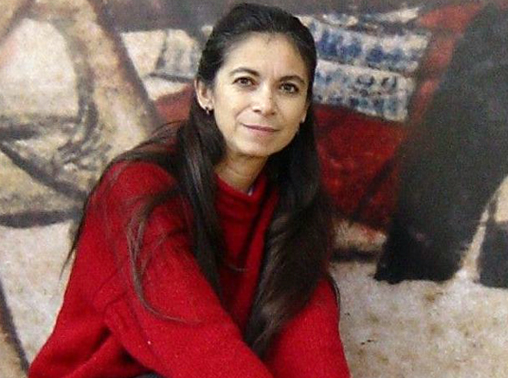
Fresh fiction by Mexican writer Carmen Boullosa, translated by Kristina Zdravič Reardon
Featuring a kidnapping, a prison, a drug lord, an inmate called the Inmate-Prince, and a prostitution network, Carmen Boullosa suggests through stark satire in this story that truth is, indeed, stranger—and more complex—than fiction. At the same time, she addresses the narrative gaps between truth and fiction head-on with four levels of meta-narrative.
To begin, she writes that this piece is “a conversation between a film producer (John Grandcaca), a multi-award-winning Mexican writer (Julio de la X), and the assistant producer, with a moralizing note from the author.” At once, we see four levels of narration: the writer’s script, the summary of the script from the assistant producer, the commentary on the summary of the script from the producer to the writer, and the commentary from the fictional stand-in for Boullosa. Yet the narrative proves even wilder than the layers might at first suggest.
Mexico released official crime rate statistics from the last several years this spring. While some claim the statistics are dubious, the publication highlights a high number of kidnappings, extortions, and thefts across the country. Boullosa draws attention to these through dark humor here, and in doing so, forces the reader to reflect on the gaps between truth and fiction and how we, as readers, navigate that divide.
—Kristina Zdravič Reardon
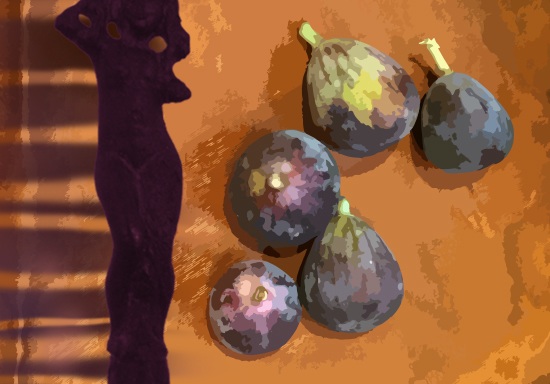
"The fig trees have shed their figs and the olive trees their olives, for a strange thing has come to pass on the island of Skyra."
Read all previous posts in Asymptote’s “Mimes” translation project here.
Mime XII. The Samian wine
The tyrant Polycrates gave orders to bring three sealed flasks, each containing a different delicious wine. The conscientious slave took one flask made of black stone, one flask of yellow gold, and one flask of clear glass, but the careless steward poured one Samian wine into all three flasks.
Polycrates looked at the black stone flask and raised his eyebrows. He broke the plaster seal and sniffed the wine. “This flask,” he said “is made of base stuff and the odour of its contents does not entice me much.” Picking up the golden flask, he admired it. Then, having unsealed it, “This wine,” he said, “is doubtless inferior to its beautiful container with its wealth of vermilion grapes and lustrous vines.” Grasping the third flask, that of clear glass, however, he held it up to the sunlight. The sanguinolent wine glinted. Polycrates popped the seal, emptied the flask into his cup, and drank it in one. “That,” he said with a satisfied sigh, “is the finest wine I have ever tasted.” Then, setting his cup on the table, he knocked the flask, which smashed into smithereens.
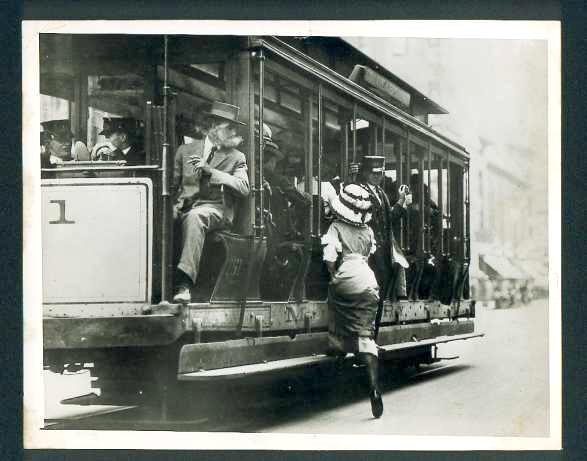
A comedic piece about a missed connection by a 19th-century Brazilian master
Norberto, who at first enthusiastically accepted the stops the streetcars made in Botafogo, is now their greatest opponent. Do you want to know why? I will tell you:
One night, at the Expo, the poor young man met the most beautiful and fascinating woman his eyes had ever beheld, and this woman—oh, joy!…oh, fortune!…—this woman smiled gently at him, and with a sweet look she invited him to accompany her.
Norberto did not wait for the invitation to be repeated: he accompanied her.
She stepped into the Avenue of the Pavilions, made her way to the entrance, and went out as if she were going to take the streetcar; he followed her, but there were so many people leaving that he lost sight of her.
Desperate, he ran for the streetcars, some six or seven being ready to depart, and he climbed onto all the side-rails, searching in vain, with eyes peeled for the unknown beauty.

"His last words—how to explain without telling her the rest?—had not come out of his mouth."
When it was all over, the mother knocked on the door to my office. She sat down in the only chair that faced mine from the other side of the desk, in the same place where the student had been a few minutes before he fell to the floor. To mask my discomfort, I offered her a box of tissues and she wiped her eyes. I had been the last person to see him the way she would have wanted to remember him. Now it would be impossible after the legal process, the photos, the morgue, and the many stories in the newspapers. She told me about his last few months, avoiding all uncomfortable commentary. Suddenly she paused. She wanted to know what his last words had been. I inhaled deeply: his last words—how to explain without telling her the rest—had not come out of his mouth.

A young man's decidedly uncanny encounter at the beach
One summer I was at a beach in Mar del Plata with a group of young Argentine friends, around ten men and women, the majority attractive, at an age with more than enough time to spend hours arguing about unimportant matters as if they were the most profound things in the world. I remember that I was fresh out of University and had traveled to Argentina for the summer. My principal interlocutor, strangely, seemed older than I, although in reality he was quite young. He was bolder in the discussion, he seemed to know the names of many more books and authors, his hair was long, his voice husky, his face angular, his body athletic. He was drinking maté and his name was Julio. Everyone else was lying around on towels with dark sunglasses, bikinis, beers, CDs, and cigarettes. Every now and then one of them would enliven the discussion with a favorable comment for Julio or for me, with objections or laughter.
– No, loco, you’re wrong. Or, are telling me you want to write like Oliverio Girondo? Man, you’re bitter.
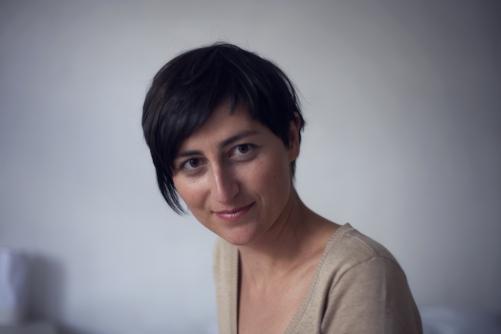
"i will / act like only that flickering, fevered light / embroidered into the tips of the fir trees is real."
Although Sandig was born in former East Germany, one would not necessarily recognise that immediately from any outward aspect of her poetry. Rather it is present in occasional turns of phrase, and perhaps in a residue of longing for a disappeared world. On the one hand, her poetry deals in the recognisably real: from the city or landscapes of the south to the minutiae of the everyday. But hers is also a voice tinged with nostalgia and a sensibility for landscape that harks back to models from the past, a compass needle finely tuned to an existential north that is overshadowed by absence and loss. Her language reflects this dichotomy: splicing contemporary slang with snippets of children’s rhymes, fairy-tales, or quotations from a nineteenth-century canon with a telling irony. Hers is a quiet voice in many ways: without showy metaphors or obtrusive forms, but with a profound sense of music, as demonstrated by the fact that some of her poems appear with musical settings on her recent CD with musician Marlen Pelny Märzwald (March World, 2011). Dickicht (2011) takes us into a “thicket” that is at once the world, the psyche, and language itself. The poems explore language at its most slippery (testing out idioms, playing with the lack of upper case to exploit multiple meanings, riffing on the formal and intimate second person address). Many poems appear in opposing pairs and insist on the mutability of what appears to be stable polarities. And if the poems always seem to go in search of a self, a home, they are also simultaneously and teasingly aware that, as Sandig put it in a recent interview, “at its best a poetry collection becomes the place where you yourself can disappear.”
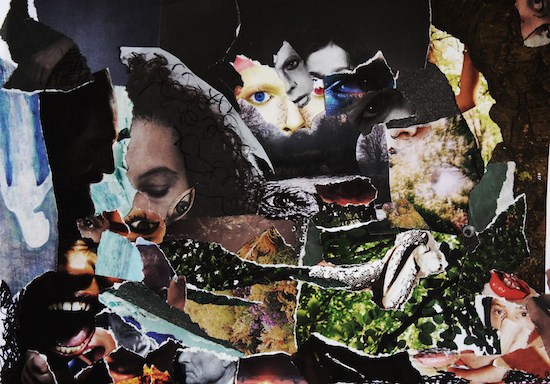
"The inhabitants bore their heads where we keep our stomachs; when they waved at us, they bowed their bellies."
Read all previous posts in Asymptote’s “Mimes” translation project here.
Mime X. The Seaman
(trans. Hannah Embleton-Smith)
If you doubt that I have plied the heavy oars, look at my hands and my knees: you will find them worn as ancient tools. I know every weed of the underwater plains that are at times purple and at others blue, and I have absorbed the science of every coiled shell. Some of the weeds are endowed with human life; their buds are transparent eyes, like jelly, their bodies like the teats of sows, and they have scores of slender limbs, which are also mouths. And among the punctured shells, I have seen some that were pierced over a thousand times; and from each little opening came and went a fleshly foot upon which the shell would move.
After crossing the Pillars of Hercules, the ocean surrounding the land becomes strange and wild.
“You cannot leave your mother an orphan.” Joyce
Not some other country’s sky,
Not some other’s housing wings –
I was there, with them, my them,
my own misfortunates.
An Other Introduction
In the ghastly years of the Yezhov Terror, I passed seventeen months standing, waiting in line outside a Leningrad prison. One day, somehow, someone “identified” me. And a woman behind me, her mouth blue with cold, who, of course, had never heard of me, started out of her numb and shared distraction, and said to me, quite close (we all whispered, there) :
Ah, can you write this ?
And I said, Yes.
And something nearly a smile slipped across her face, and made it one again.

"Who would have guessed that love would collide / Into the wall that is FPI."
Efpei I’m in Love by Nala Arung
The cover of Efpei I’m in Love, a poetry collection by Indonesian writer Nala Arung, announces that it is “a book of tasteless poetry.” And it is apparent from the outset that its tastelessness operates on multiple levels.
Its title is deliberately lowbrow—a take on the title of the wildly popular teenage chick-lit novel, Eiffel … I’m in Love, published in 2001 and adapted for film as a romantic comedy of the same name two years later.
The Efpei that has displaced the original Eiffel refers to the FPI, or Islamic Defenders’ Front. A hard-line Islamic vigilante organization, FPI has gained national notoriety for using violence to enforce their interpretation of Islamic law. Its members often patrol areas for signs of un-Islamic activity, destroying property and beating up offenders. The organization has also attacked religious minorities, including Buddhists, Christians, and Ahmadi Muslims, whom they consider a heretical sect. FPI is certainly no laughing matter and hardly the stuff love poems are made of—or so it would seem until one reads the titular poem “FPI, I’m in Love.” READ MORE…

Surreal tales from Mexican author Cecilia Eudave, translated by criticism editor Ellen Jones
The Imaginary Pet
As I was drinking my tea and noting the unique colour of the jacaranda tree, I was struck suddenly by a sad, painful memory: my first pet. She wasn’t cruel or aggressive, quite the opposite, she was a sweet creature, delicate and extremely intelligent (she taught me to read), with a slender body the colour of a jacaranda, so skinny she could have passed for a bookmark. She was my best friend, she went with me everywhere, slept in my bed, came out with me in my bag, played games with me, sang me to sleep. She always kept watch over my dreams, and with her by my side no nightmare ever dared enter my head.